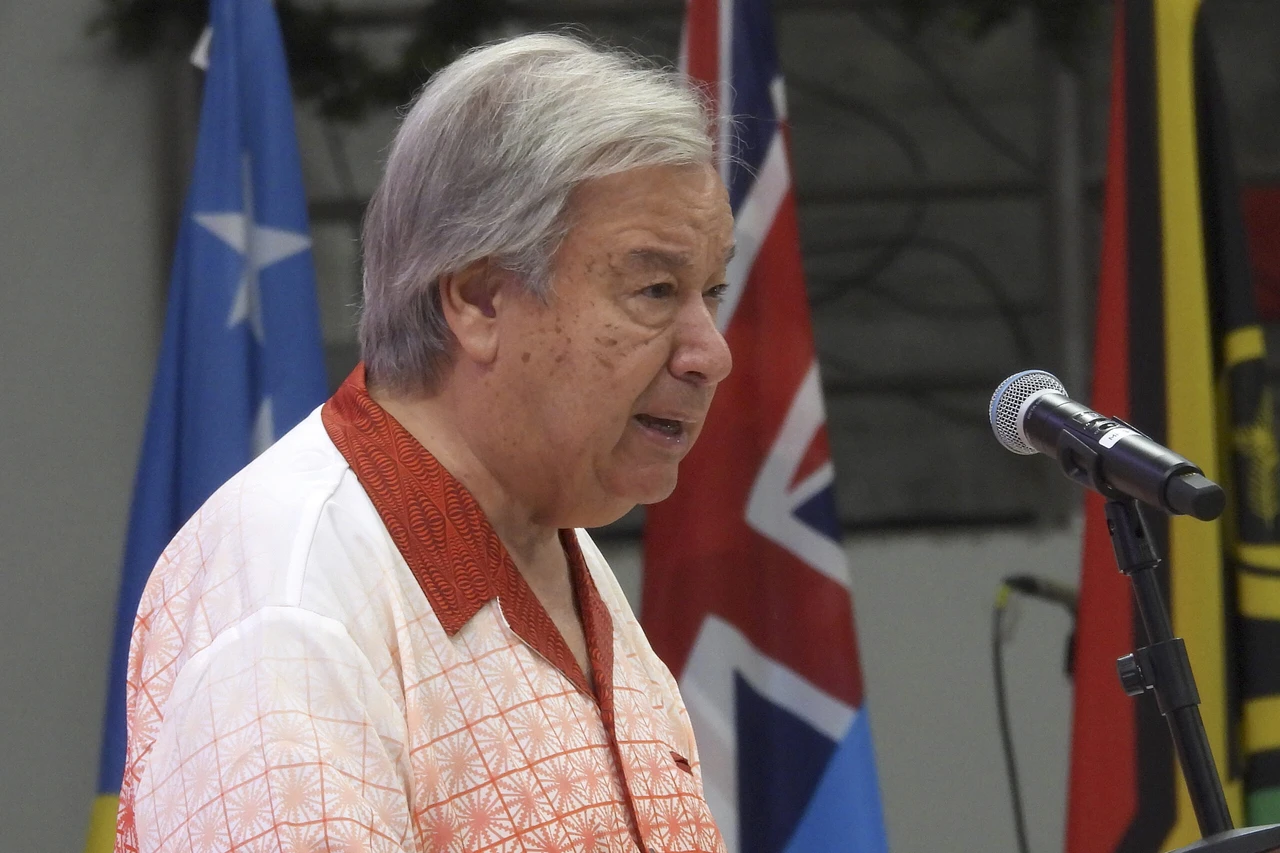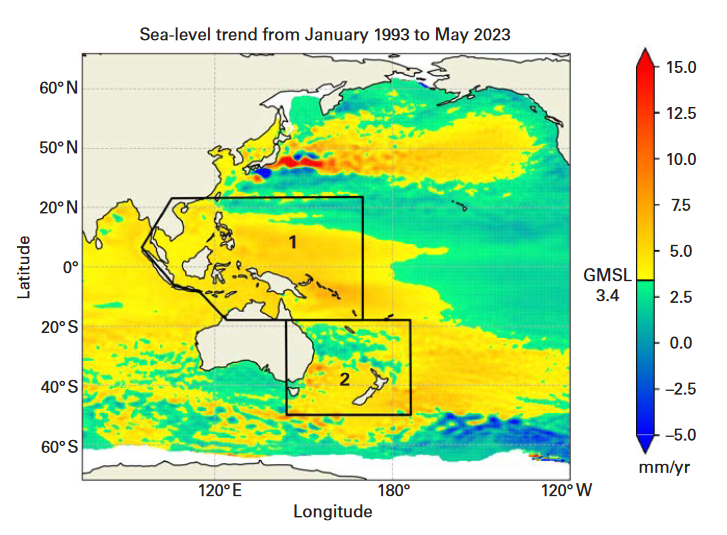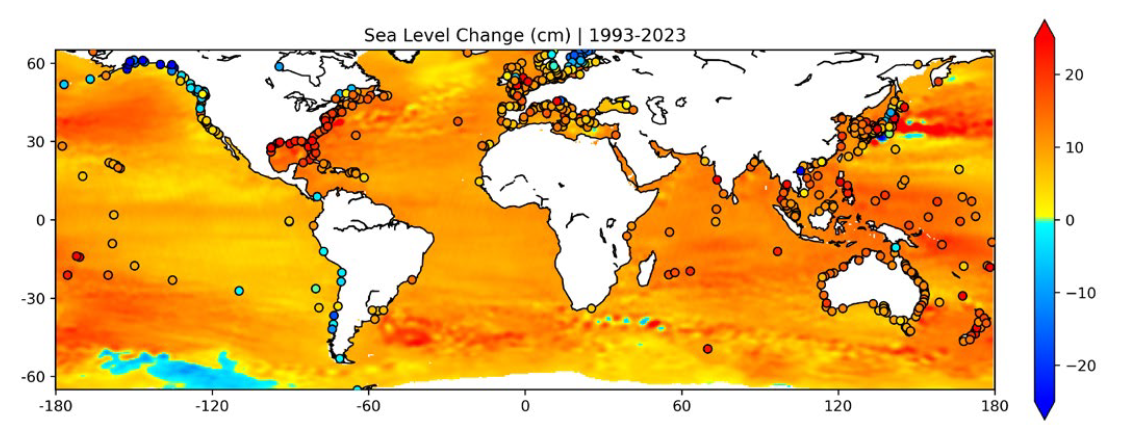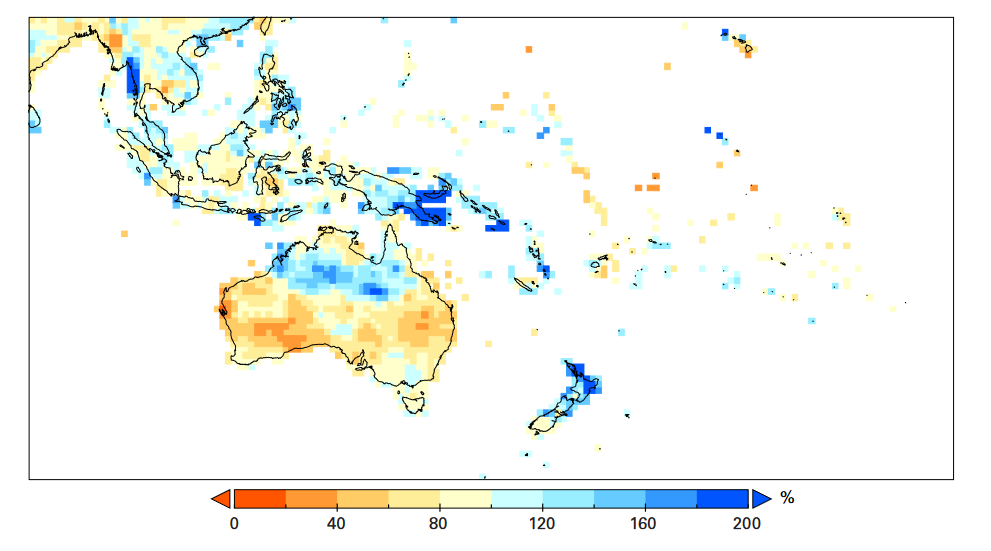UN chief warns of ‘unimaginable’ catastrophe due to rising sea levels
 United Nations Secretary-General Antonio Guterres speaks at the opening of the annual Pacific Islands Forum leaders meeting in Nuku'alofa, Tonga, Monday, Aug. 26, 2024. (AP Photo/Charlotte Graham-McLay)
United Nations Secretary-General Antonio Guterres speaks at the opening of the annual Pacific Islands Forum leaders meeting in Nuku'alofa, Tonga, Monday, Aug. 26, 2024. (AP Photo/Charlotte Graham-McLay)
United Nations Secretary-General Antonio Guterres issued a stark warning Tuesday about the escalating climate crisis, emphasizing the dire threats posed by rising sea levels and greenhouse gases during his address at the Pacific Islands Forum Leaders Meeting in Tonga.
Rising seas, rising threats
Speaking to more than 1,000 international delegates in Tonga’s capital, Nuku’alofa, Guterres described the situation as “a crisis entirely of humanity’s making” and urged immediate global action to mitigate the impact on some of the world’s most vulnerable regions.

“This is a crazy situation: Rising seas are a crisis entirely of humanity’s making. A crisis that will soon swell to an almost unimaginable scale” he said. “The reason is clear: Greenhouse gases – overwhelmingly generated by burning fossil fuels – are cooking our planet. And the sea is taking the heat – literally.”
Pacific islands under threat
The Pacific Islands, where approximately 90% of the population lives within 5 kilometers (3 miles) of the coast, are particularly at risk, Guterres noted.
The region’s low-lying communities, with an average elevation of just 1 to 2 meters (3.2-6.5 feet) above sea level, are “uniquely exposed” to the consequences of climate change.
“Without drastic cuts to emissions, the Pacific Islands can expect at least 15 centimeters (6 inches) of additional sea level rise by mid-century and more than 30 days per year of coastal flooding in some places,” Guterres warned. “But if we save the Pacific, we also save ourselves. The world must act and answer the SOS before it is too late.”

Appeal to biggest polluters
Guterres repeated his call to the world’s biggest polluters, particularly the Group of 20 (G20) nations, to take responsibility for reducing emissions. He emphasized that these countries have a crucial role to play in addressing the climate crisis and supporting the world’s most climate-vulnerable nations.
“There is an essential responsibility of the big polluters,” he said. “The Pacific is today the most vulnerable area of the world. There is an enormous injustice in relation to the Pacific and it’s the reason I am here.”
Guterres also pointed to the Pacific Resilience Facility, a financial institution designed to help local communities build resilience to climate change. The facility, set to begin operations in 2025, is facing significant funding shortages from international donors.
“We need a surge in funds to deal with surging seas” he said.
Reports highlight rising sea levels
Guterres’s remarks came as two United Nations agencies released reports highlighting the accelerating threat of rising sea levels. The World Meteorological Organization’s “State of the Climate in the South West Pacific” report and the U.N. Climate Action Team’s “Surging Seas in a Warming World” report both noted that sea levels in the Pacific have risen more than twice the global average over the past 30 years.
“Today’s reports confirm that relative sea levels in the Southwestern Pacific have risen even more than the global average – in some locations, by more than double the global increase in the past 30 years,” Guterres said.

UN calls for global solidarity
As the U.N. General Assembly prepares to hold a special session on the existential threat posed by rising sea levels next month, Guterres urged global solidarity and immediate action to prevent further damage.
“There is an obligation of the G20 that represent 80% of emissions – there’s an obligation for them to come together, to guarantee a reduction of emissions now,” he said. “Only by limiting warming to 1.5 degrees Celsius do we have a fighting chance of preventing the irreversible collapse of the Greenland and West Antarctic ice sheets – and the catastrophes that accompany them.”
Guterres’s participation in the Pacific Islands Forum marks his second appearance at the annual meeting, which brings together leaders from 18 Pacific Island nations, including Australia and New Zealand.



